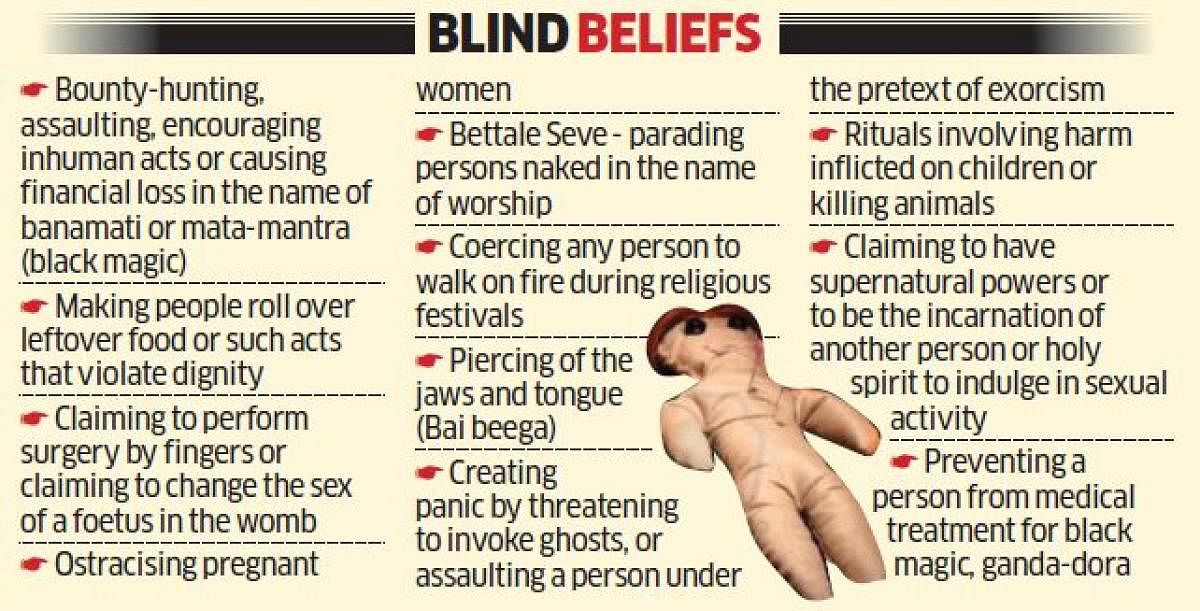
The B S Yediyurappa-led BJP government has notified the anti-superstition law, passed three years ago, that bans 16 practices, including human torture in the guise of religious rituals among several others.
The Karnataka Prevention and Eradication of Inhuman Evil Practices and Black Magic Act was passed by the legislature in November 2017 and Governor Vajubhai R Vala gave his assent subsequently, but the law was not notified. It has now emerged that the Social Welfare department notified it earlier this month, and the law has come into effect from January 4.
Confirming this, Social Welfare principal secretary G Kumar Naik pointed out that the law will be formally applicable once it is gazetted.
It was the BJP that had opposed the law when it was in the Opposition, calling it “anti-Hindu”. Deputy Chief Minister Govind Karjol, one of BJP’s tallest Dalit leaders, is in charge of the social welfare department.
Superstitious practices, including black magic, are punishable with imprisonment of up to seven years and a maximum fine of Rs 50,000.
It was during the Siddaramaiah-led government that the law was drafted by a team from the National Law School of India University.
Siddaramaiah, a rationalist himself, pushed for its passage. A debate raged on the very definition of superstition and its conflict with faith. Amid protests by the BJP, the law had to be watered down and the demand to bring astrology under it was not considered. Mudradharane, the stamping of a hated die on the body, a practice followed by Madhwa Brahmins, was left out.
The Social Welfare Department has been designated as the nodal agency to implement the law. According to draft rules that have been issued, the government will take up programmes to create awareness among citizens about “ill effects of the inhuman, evil practices and black magic” apart from providing medical relief to persons injured because of superstitious acts.
Vigilance officers will be appointed to oversee implementation of the law and they will be assisted by the police, the draft rules state. A half-yearly review will be done to check the status of the implementation of the law and the state police chief is expected to submit district-wise details on cases that have been filed.
